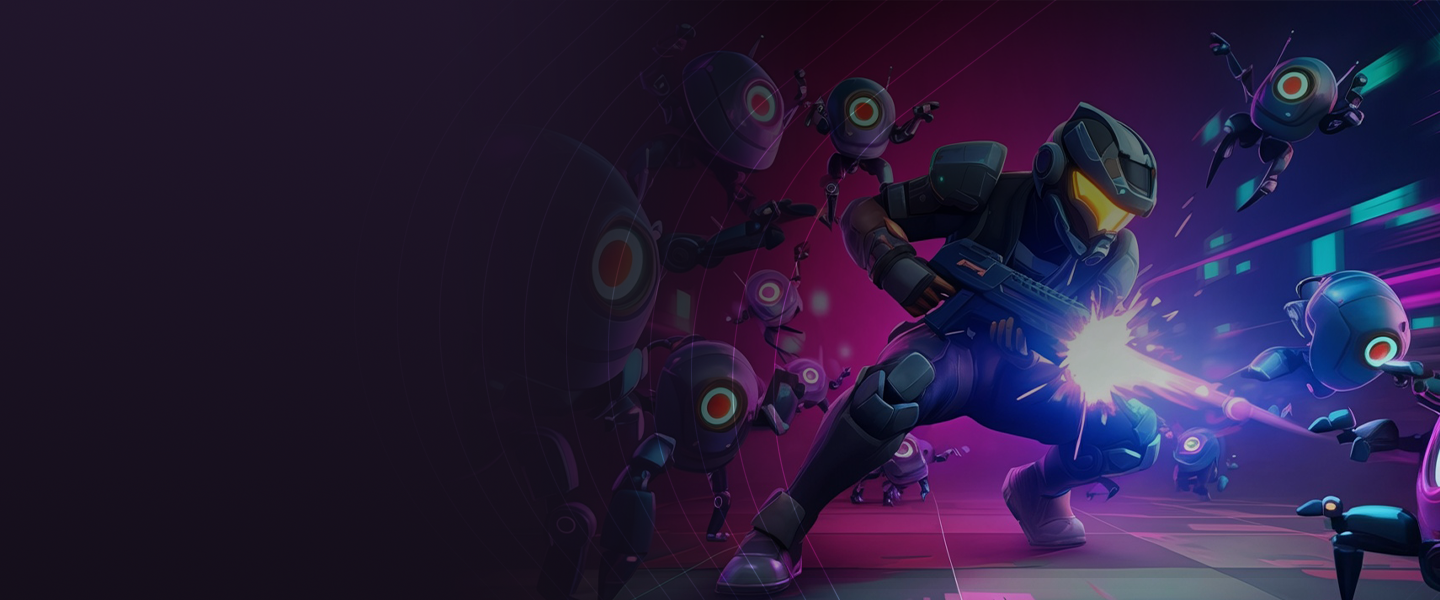Fair competition is always at the heart of a great gaming experience. Input automation – tools and techniques that automate player actions, however, has become a growing challenge for developers and players alike. Let's explore what input automation is, its different types and the negative impacts it can have on games and their communities.
What is input automation in games?
Input automation refers to any system, tool or script that automatically performs game actions, such as pressing buttons, moving the mouse or executing combinations, without requiring real-time human input. While some automation is legitimate, in competitive gaming it is often used to gain unfair advantages.
The 4 main types of input automation
- Macros: Pre-programmed series of key presses or mouse clicks that help a player trigger all actions at once with a single command instead of performing them one by one; for example, one button triggering a full combo in a fighting game or repeated harvesting in an MMO.
- Bots: Bots are designed to simulate player actions over long periods without human involvement, automating repetitive and time-consuming tasks like auto-leveling, nonstop farming or quest completion in RPGs.
- Scripting: Scripting uses custom code to execute precise, timed actions faster and more accurately than any human could, such as perfect aim in first-person shooters, flawless dodges in MOBAs or instant reaction speeds to enemy movements.
- Hardware automation: Hardware automation uses external devices like programmable controllers or turbo buttons to send rapid, repeated inputs directly to the game system, significantly reducing the effort required to perform complex or repetitive tasks.
Distinguish between legitimate and illegitimate input automation
As mentioned above, not all automation is malicious. Some forms of input automation are developer-approved and often designed to enhance accessibility or reduce repetitive strain, while illegitimate automation creates unfair advantages, unbalances in-game economy and harms fair play. Below are examples to distinguish between them.

What are the negative impacts of illegitimate input automation?
Unfair advantage
Automation allows cheaters to consistently outperform legitimate players, giving them an unfair edge and breaking the competitive balance of the game. This makes the game feel one-sided and less engaging for those relying solely on their own skill.
Frustrated players
Legitimate players often feel cheated or demotivated when facing automated opponents. This frustration can reduce player engagement and negatively impact their overall gaming experience.
Erosion of skill
This leads to the erosion of skill-based competition. When automated tools can achieve results that normally require practice and mastery, the value of real player skill diminishes. Victories feel less meaningful and the sense of accomplishment that comes from genuine effort is undermined.
Damage of in-game economy
Automation also has serious economic consequences in games with player-driven markets. Bots can flood the in-game economy with items or currency, destabilizing their prices and progression systems. This makes it harder for honest players to compete fairly or achieve meaningful rewards.
Reputation risks
Beyond players, persistent automation problems can harm a game’s reputation, giving the impression of an unfair or poorly managed gaming environment. This can drive away dedicated players and damage long-term retention.
Developer burden
Combating automation puts a significant burden on developers. Monitoring, detecting and preventing automated behavior requires continuous resources and sophisticated anti-cheat measures, increasing operational costs and complicating development. Addressing these challenges is essential to maintain a fair, engaging and trusted gaming environment.
Why detecting automation-based cheating is hard
Traditional anti-cheat methods, like signature-based detection or client-side monitoring, are primarily designed to catch known cheats or unauthorized modifications. While effective against older cheating techniques, these approaches struggle with input automation for several reasons:
- Human-like patterns: Modern automation can mimic human input with near-perfect timing, making it extremely difficult to distinguish between legitimate player actions and automated sequences.
- Low visibility on client-side: Input automation often occurs without altering game files or memory structures. This means client-side detection has limited visibility into whether a sequence of inputs is genuine.
- Rapid evolution: Automation tools evolve quickly, and traditional anti-cheat signatures can quickly become outdated. New scripts, macros or hardware solutions may bypass conventional detection entirely.
Because of these challenges, relying solely on traditional anti-cheat can leave games vulnerable, frustrating legitimate players and damaging the competitive environment.
Server-side, AI-driven behavioral analysis is the key!
In a world where cheats are increasingly sophisticated, behavioral anti-cheat represents the next generation of fair play enforcement. Instead of just scanning for known cheats, it focuses on server-side AI-driven behavioral analysis. This approach monitors player input patterns and in-game behavior in real time, detecting subtle anomalies that indicate automation.
- Contextually-aware detection: By analyzing the timing, frequency and consistency of actions, this approach can differentiate between genuine human play and automated sequences.
- Server-side analysis: Unlike client-side checks, server-side monitoring makes it far harder for cheaters to evade detection, since input behavior is analyzed remotely and independently of the player’s machine.
- Adaptive AI: Machine learning algorithms continuously refine detection models based on emerging cheating techniques, allowing the system to stay ahead of new automation methods.
No cheats, no automation, just pure competition!
Contact us to stop input automation before it can impact your game, maintaining a competitive and skill-based experience for your players!










/Images/Module%20-%20footer/spiral.svg)
